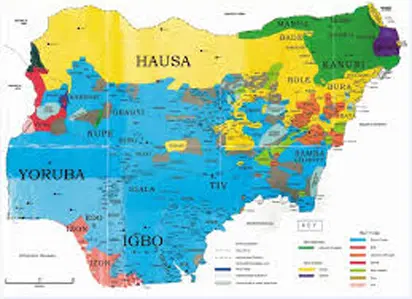The clamour for change has been a constant theme in Nigerian politics, often triggered by the state of the nation, which acts as a catalyst for political action. Notable examples include the movements in the 1970s, culminating in the Fourth Republic, and the peaceful transfer of power in 2015. That year marked a pivotal moment when Nigeria’s “change” advocates aimed to reshape the political landscape, reminiscent of the patriotic generals of 1975 who sought to rejuvenate the nation.
However, unlike the 1975 generals who succeeded in revitalizing the country, the 2015 change agents squandered nearly a decade, failing to deliver substantial progress. Their efforts lacked a clear reformist or revolutionary agenda, leading to the current situation where another call for change in 2027 seems inevitable.
A stagnant political system—whether democratic, monarchical, or totalitarian—can inspire either progressive or regressive change. In Nigeria’s case, the change promised in 2015 turned out to be a mirage. Some of those advocating for change morphed into political figures who betrayed the very ideals they once championed. This transformation reflects the ruling All Progressives Congress (APC)’s disregard for the suffering of ordinary Nigerians.
The factors that made change necessary in 2015 have reemerged, making it clear that another change is needed in 2027. The change of 2015 failed for several reasons:
- It lacked a strong ideological foundation, whether secular or theocratic, which has been essential in driving progressive changes in other countries.
- As a continuation of the old regime, the APC could not break free from the entrenched “business-as-usual” practices.
- The party was led by democratic autocrats unwilling to consider alternative viewpoints.
- It was heavily influenced by external actors who shaped the direction of the supposed change.
- The regime criminalized any questioning of its deviations from the change agenda and violated core values like freedom and justice.
- The change divided the nation into “victors” and “victims,” disproportionately distributing the burdens and benefits of governance.
With the removal of fuel subsidies, economic stagnation, rampant cronyism in government, and a widening poverty gap, Nigerians have come to realize that the pre-2015 era, flawed as it was, represented a better time in comparison to current hardships. Should the Tinubu administration continue its current policies, the discontent leading up to 2027 may dwarf the change movement of 2015.
The key lessons from 2015 and 2023 are clear: fragmented opposition parties struggle to unseat an incumbent party in Nigeria, and a president with either a lack of vision or external entanglements cannot successfully implement a change agenda that pleases Nigerians while displeasing Western powers and the institutions they control.
However, are the opposition parties ready to challenge the APC in 2027?
Following the 2023 presidential election, the leading opposition party, the People’s Democratic Party (PDP), has been plagued by poor leadership. Its focus on retaining control over Rivers State at all costs led to a mishandling of the Wike issue, severely weakening its position. By the time the PDP recovers, it may have lost significant momentum as the primary opposition force.
Additionally, the recent loss in the Edo State gubernatorial election, combined with internal divisions within the Labour Party and Peter Obi’s reluctance to be considered as a vice-presidential candidate, as well as Rabiu Kwankwaso’s dismissal of the PDP as a viable party, highlight the deep fractures within the opposition. These factors make it difficult for them to present a united front against the APC in 2027.

